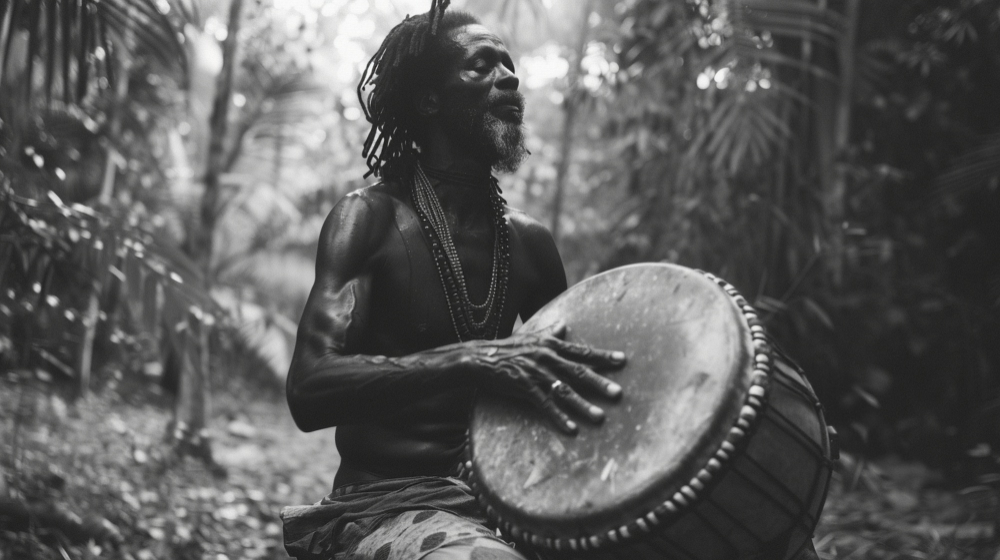The Puritanical Friends | The Educated Empties

Sometimes I wonder if we even know who we are anymore.
We say we are fighting, but for what? For freedom? For dignity? For justice? Or are we only fighting the ghost of the white man, so consumed with opposition that we have forgotten what we are actually trying to become? We have built our politics around rejection, not creation. We have learned to define ourselves by what we are not. Not Western. Not colonial. Not oppressed. Yet in all our refusal, what have we accepted of ourselves? Who are we when there is no one left to resist?
I have started to laugh at my friends. At myself too.
Not the kind of laughter that brings relief, but the kind that comes when truth presses too close. It is a nervous laughter. A tired one. Because we, the educated Africans, have become a tragedy told with polished grammar.
We wanted to change the world, but now we mostly write about it. We wanted freedom, but now we curate it into projects. Somewhere between theory and comfort, between ambition and fear, we became what we once studied. We are the children of independence. Fluent in borrowed languages. Dressed in the discipline of our degrees. We left home to learn, and we came back talking like strangers. Our accents got cleaner. Our certainties louder. We say development as if it were a moral calling. We say innovation as if the word itself were a prayer.
And when we speak, we do so carefully. Every syllable measured, as though clarity were a sign of worth. Watch us on television, listen to us on the radio, scroll through our social media videos. You will see our lips move precisely, shaping vowels as though we were all preparing for an audition with the BBC. The mouth opens wider, the tongue presses differently, the jaw tightens at the right moments. It is not just speaking. It is a performance of legitimacy.
We call it confidence, but it is anxiety disguised as polish. We want to sound modern. We want to sound global. To speak differently is to belong. To sound like home is to risk being dismissed. We have turned pronunciation into class, and fluency into virtue. Behind all this talk of progress, there is something hollow. We have learned how to imitate virtue. We have learned how to sound ethical without ever being vulnerable.
Fanon warned us that the educated African, once trained in the coloniser’s classroom, often returns to serve the same system, only now with better manners. He said our class would speak of freedom while guarding the architecture of oppression. Marx said something similar, that the ruling class, once formed, will always protect its own image of necessity. Perhaps we have done both. Inherited the coloniser’s habits and given them our own justifications. We call ourselves the enlightened ones. We organise panels about reform. We draft policies about the future. We talk about youth empowerment while clinging to every advantage we can. We denounce corruption in public and reproduce hierarchy in private. We talk of change but never risk our salaries for it.
There is a word that keeps coming to mind: respectability. It is our quiet religion. We fear poverty more than we love justice. We protect appearances as if they were sacred. We dress progress in suits and data sheets and call it transformation. Ngũgĩ wa Thiong’o said that language carries memory. But most of us have traded ours for convenience. We raise children who cannot pray in their mother tongue because English, we tell ourselves, is a passport to survival. It is also a silence. Each time we forget a word, we lose a piece of history.
I once thought education would set us free. Now I see that it can also become a fence. It separates us from those we claim to serve. We talk about “the people” as if we were not among them. We observe poverty like a phenomenon rather than an inheritance. We collect the struggles of others and turn them into paragraphs.
Achille Mbembe called it the aesthetics of vulgarity, a culture where decay wears the face of elegance. I see it every day. In how the educated middle class performs outrage while protecting the same institutions they condemn. In how we beautify exploitation through branding, language, and good intentions. We hold conferences about ethics while our universities exploit young academics. We speak of empowerment while our governments silence dissent. We celebrate democracy while the same families rotate through power. The political class and the professional class have become reflections of each other. Fluent. Polished. Afraid of losing privilege.
The politicians steal money. We steal meaning.
And we steal it fluently. We use our accents like armour. The smoother our speech, the easier it is to escape responsibility. When we sound refined, people listen. They assume intelligence. They assume goodness. But the truth is that our clarity has become a shield. We hide behind perfect sentences to avoid moral chaos.
I often ask myself what role I play in this farce. I teach. I write. I critique. But do I change anything? Or do I simply rearrange the vocabulary of inequality?
There are moments I think about leaving it all. About returning to my village. Living slower. Teaching without the performance of status. Growing something that feeds people instead of feeding discourse. But then I remember that even the village is not outside the reach of this world. Poverty there is no longer pure. It has learned to imitate aspiration too.
So what should the educated do? Should we confess and begin again? Should we burn the scripts we inherited and start from the silence that follows?
I do not know.
Sometimes I think the first act of revolution is listening. Listening to those we have turned into subjects of our theories. Listening without planning to respond. Listening until we remember that humility is also a form of intelligence.
But humility does not come easily to those who are trained to be right.
We, the educated Africans, speak too quickly. We analyse before we feel. We prescribe before we understand. We rush to correct others before correcting ourselves.
And yet, despite all this, I still believe we are not beyond redemption. I believe that something fragile, something sincere, still beats beneath the performance. Perhaps our contradictions are not our end but our beginning.
The truth is that we are both victims and beneficiaries of history. We inherited a broken house and decided to decorate it instead of rebuilding it. We became interior designers of colonial ruins.
Fanon would not be surprised. He said the educated elite would betray the revolution, that we would prefer negotiation to struggle. But maybe he did not account for fatigue. For how heavy it feels to carry inherited failure.
We are tired, but we must not confuse exhaustion with wisdom.
I look around and see a generation fluent in the language of critique but starved of compassion. We want progress that costs us nothing. We want justice without discomfort. We want transformation that fits into a work calendar.
Sometimes I wonder if laughter is the only honest response left. The absurdity of it all. Our seriousness. Our essays. Our committees. Our endless plans. We are living contradictions trying to look consistent.
And when we open our mouths, we sound like a class rehearsing its lines. We pronounce every syllable correctly, yet every word feels distant. We have learned how to speak, but not how to connect.
So I write this not to instruct, but to confess. I am part of what I condemn. I am shaped by the same fears, fed by the same privileges, seduced by the same respectability. I do not stand above the Puritanical Friends. I am one of them.
And yet, I still believe in the possibility of awakening. Perhaps not a revolution, not yet, but a reckoning. A quiet turning inward. A slowing down. A remembering.
The educated African may learn to stop explaining and start listening. To stop leading and start living. To stop polishing the accent of imitation and rediscover the voice that feels like home.
I do not know what comes after that. I do not know if returning to the village would fix anything. I do not know if any of this can be undone.
But I know this. The world we have built cannot survive our silence forever. And neither can we.

